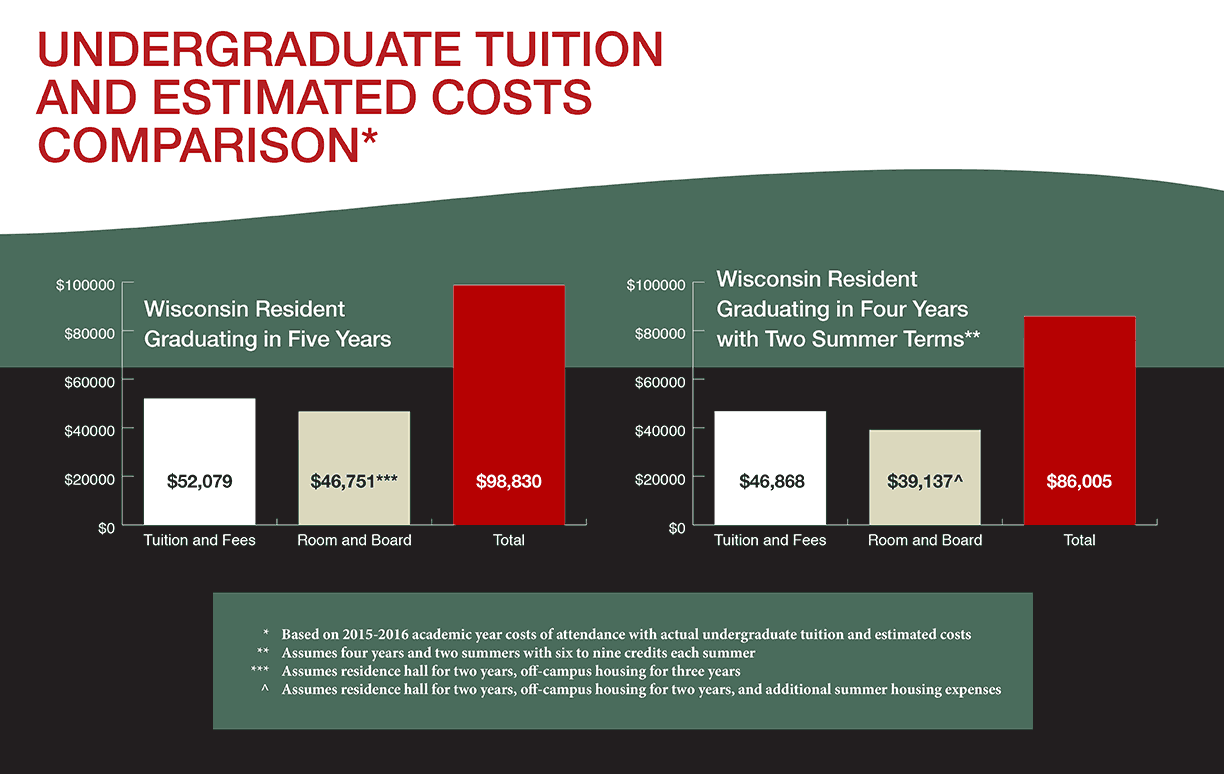While some students are content to take a summer break, others want something more. They hope to make a summer breakthrough.
UW–Madison’s Summer Term is designed for such students. In sessions ranging from three to eight weeks, they can gain a competitive edge for their degrees and their careers. They can also save money by staying on track to graduate in four years.
Students have often cited finances as a barrier to participating in Summer Term. In response, the university is offering $250,000 in summer scholarships this year, up from $25,000 last year. The scholarships will help eligible students cover tuition and fees.
“I wouldn’t have been able to take summer courses without [a] scholarship,” says Erin Skalitzky, a UW student majoring in life sciences communication. “My family has been going through some financial hard times, so being selected for one of the scholarships meant a lot to me.”
For UW student Maria Novak, Summer Term also offered breathing room. During her freshman year, she was unsure about her academic and professional goals. Novak knew she couldn’t afford to spend more than four years getting her undergraduate degree, but she needed time to explore a variety of courses to see what she liked.
“I knew I could take advantage of Summer Term should I fall behind on a four-year track,” Novak says. “The timeframe seemed less rushed, and I felt more comfortable making course decisions.”
Making up ground
Taking more than four years to earn an undergraduate degree can be costly, especially when factoring in additional tuition and rent. Students can fall behind on their degrees for many reasons, including semester-long study abroad programs or internships. Summer Term’s accelerated courses are a cost-effective way to make up ground.
“I was looking at all the courses I needed to take, and Summer Term seemed like a good way to keep myself on track for my degree,” says Sage Bladow, a UW student double majoring in chemical engineering and vocal performance.
Following her freshman year, Bladow enrolled for two classes, Physics 202 and Music 151, over the summer. Earning those credits resulted in a more manageable sophomore schedule, she says.
Change of pace
Through Summer Term, Novak was able to explore more options and choose a psychology major. She then took advantage of another benefit of Summer Term: the ability to take classes—particularly the more difficult ones—without having to juggle a full semester workload.
“The opportunity to enroll in Summer Term courses has proven to be extremely beneficial and has allowed me to fulfill challenging degree requirements at my own pace, with my undivided attention,” Novak says.
With the opportunity to focus on just one course at a time, it can be easier for students to earn the grades and credits needed to get into a particular area of study or into graduate school.
“Since I was only taking one class, rather than taking four or five, I could really focus,” says Grace Buting, a communication arts major at the UW. “I found that rewarding, because if I’d taken this class during the semester, I might have missed some parts that I really enjoyed. The fact that the class was four weeks helped me build my skills faster, so I found that a huge advantage for taking a summer course.”
Flexibility and career preparation
Taking advantage of Summer Term can also create a more flexible schedule during the fall and spring semesters. Students can use Summer Term to get ahead on required courses or explore elective courses.
“I took some public health classes that I would not have been able to fit in otherwise,” Skalitzky says. “I just found out that I’m accepted into a few master’s in public health programs, so now I feel more prepared.”
For those who can’t be in Madison for the summer—or who can’t square a face-to-face class with their work and vacation plans—Summer Term features more than a hundred online courses.
“An online class is great, because you can take it from anywhere and fit it into any schedule,” says Bladow. “My schedule was different every week, and just being able to work on my coursework whenever I needed to was really important to me. It allowed me to be successful in my physics course while also working 30 hours a week.”
Summer Term also offers a wide range of courses with real-world training and career preparation. For example, there’s a service-learning course that provides art students with valuable experience in organizing community events. Anthropology students can take a field course in archeology, in which they gain hands-on practice at a dig. And a political science course offers an internship program in Washington, D.C., where students can work in a legislative office.
Experiences of a lifetime
In addition to the academic benefits of Summer Term, students say that spending a summer in Madison offers unique, unforgettable experiences. Campus can feel more intimate over the summer months, says Logan Reigstad, a UW–Madison journalism major.
“There was a different vibe on campus [last summer],” he says. “There were certainly still students around, but they were fewer and farther between, so it felt like I had more breathing room.”
With warmer weather and more free time, students can enjoy all that the city has to offer: music on the Terrace, recreational activities on the lakes, the Farmers’ Market on the Capitol Square, and many festivals around town.
“Summer in Madison is unlike the busy semesters,” Novak says. “The Terrace was practically in my backyard, and the music scene is incredible. I wouldn’t have traded the opportunity to remain on campus for a different experience elsewhere.”
Visit the Summer Term website to learn more about courses, programs, fees, housing options, and summer jobs.
